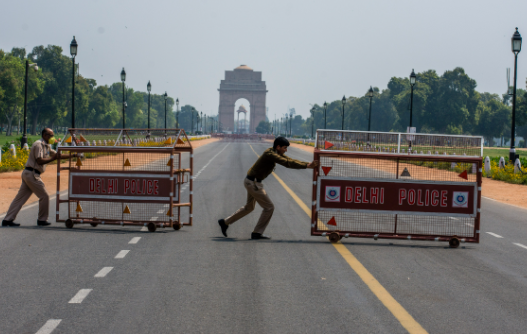Academic writing assignments present a challenge for all students. The cliché, “Nobody ever wrote a book in an afternoon,” is true. That being said, there are ways to successfully complete your assignment and impress your instructor.
We spend hours researching the topic, pouring our heart and soul into the paper before beginning to write it. But with all of that work that goes into preparing for an assignment, we often end up cramming at the last minute and not having any time left to proofread or edit our work properly. It’s inevitable that mistakes will be made. In this article, you will learn some tips on how to avoid common errors when working on an assignment. So read on to find out more about how to prepare for your next academic writing assignment!
Different Types of Writing
Errors
The key to writing is to read your work over and over again. This will help you catch mistakes early on in the process and prevent them from turning into major issues later on.
The first step in preventing mistakes is knowing what kinds of errors to look out for, especially in academic writing assignments. Academic papers generally have five common types of errors: spelling, punctuation, grammar, plagiarism, and factual errors.
Spelling errors happen when words are spelled incorrectly or used incorrectly. For example, if you type “poem” instead of “problem,” this is a spelling error. The most popular error among students is incorrect word choice. When you’re unsure about which word or phrase to use, ask yourself if there’s a better one available that would convey your intended meaning more effectively. Assignment Help Malaysia to students and help them get rid of academic stress.
Punctuation errors occur when a sentence doesn’t include proper commas or quotes properly. If you’ve ever seen an exclamation point followed by a period instead of a question mark at the end of a sentence, then you’ve seen a punctuation error! Punctuation errors can also be caused by missing apostrophes or quotation marks in dialogue.
Grammar errors occur when words are used inappropriately and sentences don’t
Planning Your Essay and Outlining the Essay
Researching and brainstorming are the first steps to successfully completing your academic writing assignment. You need to know what information you want to include in your essay, and how it will be structured.
In order for your paper to be effective, you should know what point you want to make at the beginning of your essay. What do you hope that your reader takes away from your paper? If you’re writing a persuasive essay, it’s important that you know the conclusion that you want readers to take away from reading your work.
Once you have an idea of what information is important and how the paper will be structured, it’s time to put together a rough draft. That rough draft will give you a better idea of whether or not this is an assignment worth finishing!
Preparing for The Writer’s Block
Writer’s block is a common issue for writers. It’s easy to not want to write because you’re too busy trying to figure out how to improve your work or you’re too afraid of what might happen if you stop writing and push forward.
However, writer’s block doesn’t have to be an issue.
There are things that you can do to help yourself break through the block and get the work done!
One way to avoid writer’s block is by scheduling time for yourself. If you know that you need to get something done and python homework help will take a certain amount of time, schedule it in your calendar so that it won’t fall through the cracks.
Check Your References and Citations
One of the easiest ways to avoid mistakes is to get a second opinion on your work. Checking your references and citations will ensure that you don’t include anything that isn’t relevant to the topic.
However, it’s important to note that this isn’t an excuse for plagiarism. As per university guidelines, you must cite your sources throughout the paper.
It’s also important not to forget about your audience. What would happen if you made the mistake of including an incorrect citation? You might be left with confusing information or an inaccurate understanding of the topic at hand.
So when checking your references and citations, make sure you’re taking into account what works best for both yourself as well as your audience.
Uncovering Your Topic
The first step in successfully completing your assignment is to have a well-defined topic. You may think that you are prepared for the task, but what do you really know about your topic? What do others know about the topic? Do you have a general idea of the scope of it?
If you don’t, ask yourself these questions:
What is my assignment’s purpose?
Who are my audience members?
Where is the paper going to be written?
What are some potential solutions to my assignment’s problem or questions?
These might seem like basic questions, but they will help you narrow down an idea and provide clarity. If you don’t have enough information on your topic, consult with other sources or ask your instructor how they want you to approach it.
Creating a Title and Hook for Your Paper
One of the most important aspects of your paper is the title. It’s what will bring readers to your article and entice them to keep reading. The title should be catchy but not too long. It should also describe what your paper is about and provide a reason for readers to read it.
Another important aspect of your paper is the hook. This is what will help you grab people’s attention and make them want to read more. It can be something as simple as a question at the start of your paper or a short phrase that might intrigue someone enough to read more.
Start with a Question or Premise
One of the best ways to write an assignment is to start with a question or a premise. This gives you something specific you can work from, which will help keep your paper focused.
It’s also important to think about what you want to accomplish with your paper before you start writing.
Many times, students don’t know what they want their paper to say or how they want it to say it until they are well into the process of writing it. It’s best to have a plan in place before diving into the actual writing.
Keep in mind that when starting with a question or premise, you don’t need to answer everything in the introduction paragraph.
You can save this for later if necessary and still make sure that you have something concrete and concise in your introduction paragraph so readers know what your paper is about.
Find Similarities in Existing Literature
When you’re looking for ideas for a paper, it can be difficult to know where to start. You might feel overwhelmed by the sheer amount of information coming at you. It’s important to remember that all academic papers are not created equal. There is no “one size fits all” approach when it comes to assignments, and most professors will give specific instructions on what they want in their assignment. So, instead of blindly going into your research headfirst, try looking into similar topics that have been published before.
This is an easy way to stay organized and know what you need to include in your paper. If you find commonalities between two or more other papers, then you can use those similarities as a jumping off point for your own work. Instead of re-inventing the wheel, find what works and incorporate it into your paper with your own spin on the topic.
For example, if you were assigned a paper about female empowerment and how women should be portrayed in children’s literature, look up papers written about Native American culture and how female representation is represented in comics or video games before writing yours.
If there is common ground between these different topics then there is no need for reinventing the wheel when
Make Use of Statistics and Data
Simple mistakes such as using a word incorrectly or forgetting a letter in a word can lead to an incorrect meaning if it’s not caught during the proofreading process.
To avoid these types of mistakes, always use statistics and data. When writing about historical events, use data from reputable sources that have been thoroughly verified. If you are trying to convince someone about something, you should also rely on statistics and data to back up your argument.
Write With Confidence.
The first step to writing with confidence is to give yourself a break. Set aside time for your writing and don’t worry that you’ll have to write it in one sitting. You’ll find that, when you take the time to rest, your mind will be clearer and you will feel more inspired.
It’s also important to set a deadline for yourself. This can help encourage you to work diligently because you know there’s only a limited amount of time left. But make sure that the deadline is something reasonable so that you’re not setting yourself up for failure by being too aggressive with it.
Finally, it’s important to remember that mistakes will happen!
You might be caught up in worrying about what they are going to think of your paper or how they’re going to grade it and forget yourself as a writer and focus on what kind of paper you want them to read instead. If this happens, go back and re-read what you’ve written so far. Correct any mistakes and then continue on from there with your revisions.



